So this is part two of Live Hard’s chat with Andrew WK: if you want a bit of context, you can read part one here. Otherwise, I’d advise cranking up Gundam Rock or one of Andrew’s piano battles and settling in for some interesting thoughts on learning new things, Andrew’s favourite party song, and how to be happier.
LH: On a different tack, something that not everyone knows is that you’re amazing at piano, which you’ve been playing for years. Can I ask what you think of the whole 10,000 hour theory?
AWK: Well, I’m all right at piano, and I appreciate the compliment, but I’ve met people who are so much better at piano than me – and at other instruments – that I might as well not even know how to play. It’s just one of those things I spent a certain amount of time with, and not only have certain people spent more time on it than me, they’ve spent more concentrated, focused time on it. My piano teacher, that I took lessons with most recently – this sounds like an exaggeration, that it shouldn’t be possible, but he really can pretty much take any sheet music, extremely challenging music like Rachmaninov or Liszt, sit down and play it like you and I would open a book and read the English language. I asked him about that and he said ‘Well, pretty much anyone can do this, it just takes an amount of time dedicated to it, much like learning to read a new language.’ I do think that there is something about that, that the human brain will figure out how to learn what it thinks you need it to do. Finding the 10,000 hours, maybe having the patience to dedicate to those hours – maybe that’s the talent, having the will to subject yourself to that level of intense practice.
I would probably agree with that. Conversely, what do you think of the idea of ‘flow’ – that actually being in a relaxed state where you’re having fun is the most optimal way to learn?
Probably both come into it. It’s probably both. I would imagine that the very rigorous 10,000 hours style learning facilitates one’s ability to get into that happy-go-lucky, open-minded ‘flow’ type of learning. It seems like they’d work hand in hand. Once you have the tools to learn, then you can enter that state – for example, if you’re an athlete, you can get in that zone where you’re playing basketball with this sort of intuition and second-natured ease that someone who can barely dribble would never be able to attain. Maybe in those moments where you’re using all these skills, all these tools and resources that you’ve developed from very rigorous practice, that’s when you can find breakthroughs into other levels of ability.
Speaking of breakthroughs, an album I only heard for the first time recently was the Japan Covers, which is a bit of a departure for you. How did that come about?
Well, I was very fortunate to have a lot of great experiences in Japan, even before my first album came out. I was very lucky to visit Japan, specifically Tokyo and Kyoto with my dad, who was invited to teach over there for a couple of months. And he was over there for those months, my brother, my mom and I joined him for two weeks, and those two weeks just had a huge impact on me. One: just getting to travel to another land entirely, going overseas was huge. It seemed like it was a precursor to prime me for more Japan adventures. And once the album came out people, and I got this exciting opportunity to do Japanese songs in English. Armand, the main guy I still work with at Universal Japan was incredibly devoted but also creative, and has presented me with all kinds of ideas that I would have never thought of or had the confidence to do. And he said ‘Why don’t you do an album of all these classic Japanese pop and rock songs?’ The most challenging part was translating them into English with a translator, and retaining not just the meaning, but the phrasing and the rhythm and the rhymes, and learning the songs. And every time I do a cover song it’s challenging, because there’s a feeling like – does this really need to be re-done? If it’s a great song, that version can be so definitive that it feels almost pointless and disrespectful to do it again. But if the song’s so great there’s a joy in just playing the music, in singing the song. So I tried to stay true to the spirit of it, the style and the tone and the arrangements. So yeah, that was very exciting to be able to have that experience. Have you heard the Gundam album?
Um, no.
Well, one of my favourite songs on Japan Covers was I-Senshi, which was from Gundam, it’s huge – it’s among the first robotic science fiction fantasy adventure stories ever, it’s very beloved. So I was actually approached to do a whole album of Gundam songs, it’s called Gundam rock. These songs were even more challenging, more ornate…and more rewarding, ultimately, to record. Try to listen to it if you can.
I definitely will. Can I ask which song by someone else gets you in a party state of mind?
What’s one…Good Golly Miss Molly, I don’t think I’ve ever heard that song and been like ‘Eh, well, whatever.’ I really like national anthems in general – I like the British one, I like the American, the US one, I like happy birthday. Isn’t the British one the same as some other song that we have over here?
I…think so? [ed note: He’s right, My Country ‘Tis Of Thee has the same tune as God Save The Queen]. I’m a big fan of the Russian one.
Yeah. You really notice them at the Olympics – in Russia, I just noticed…they always work. Even if they start off quite boring they’re always really interesting – they build and they swell and it’s just great, emotionally stirring music. What else, uh…I kind of think of all of music these days as just one big song, you know, that’s just broken up into different moments and different parts, and the whole thing is just this incredible gift, this incredible phenomenon. No-one invented it, that’s my favourite thing about it – no-one invented it. It’s this thing that we all get to participate in and we all get to add to, and we all get to make, and we all get to play this song, that…who knows how it emerged, but it’s probably beyond all the amazing things that the world has given to us, music is this unbelievable miracle. It’s so baffling and strange, and yet so vast and we’re so immersed in it that…it’s a very difficult one to step back and look at.
Have you heard any Girl Talk? I always think his stuff feels like one huge, extended celebration of music.
That’s actually a very good way to describe it. It’s just snippets of different songs, and you get to see how they relate, and realise that disparate genres of music perhaps aren’t as distant as you thought they were, you know, and that things connect and literally mash up better than you would ever expect. It’s like they’re all singing along with each other in one big long song.
Definitely. Okay, last thing: can I ask what one thing you think anyone reading this could do to make their life better, today?
Take notice of the things that are already in your life that you really feel thankful for. Take the things that make you feel good, that have proven themselves to make you feel good time and time again, and cherish them. Protect them, keep them very close, you can doubt them in a healthy way – but at the same time, protect them and be glad that they exist. Whether it’s a song, or a place, or a person or a food or anything that has that ability to make you feel better rather than worse. Those are magical, powerful tools, and as much as we strive constantly to fix ourselves or find something better, or do more or get more, there’s already so much there right in front of us that…we can be distracted by our pursuits and miss out on. Remember what’s already there and let it fuel you to add more to your life – but not to replace it or make you abandon it.
HOMEWORK: I’ve got nothing to add to that. Do what Andrew WK says. And party hard!

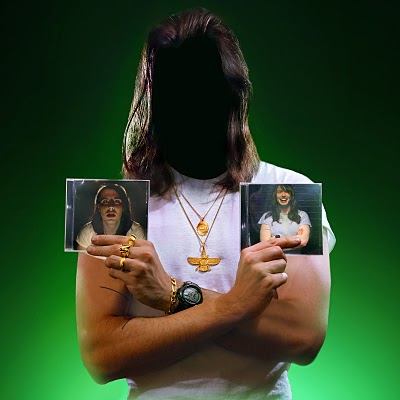
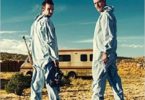
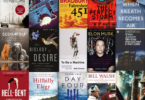
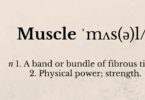
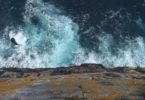

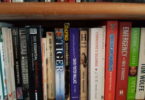
Leave a Comment